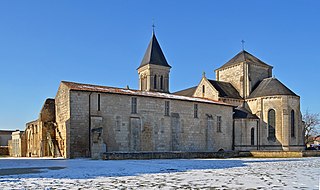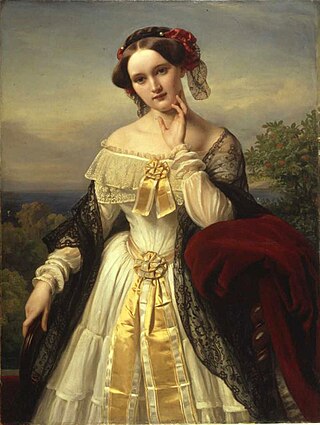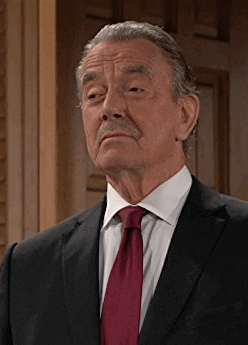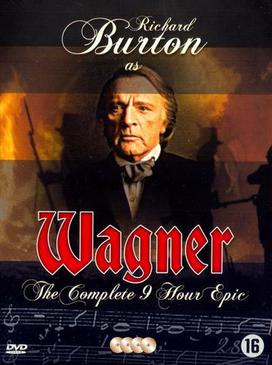
Die Meistersinger von Nürnberg, WWV 96, is a music drama, or opera, in three acts, by Richard Wagner. It is the longest opera commonly performed, taking nearly four and a half hours, not counting two breaks between acts, and is traditionally not cut. With Hans von Bülow conducting, it was first performed on 21 June 1868 at the National Theater in Munich, today home of Bavarian State Opera.

Tristan und Isolde, WWV 90, is an opera in three acts by Richard Wagner to a German libretto by the composer, based largely on the 12th-century romance Tristan and Iseult by Gottfried von Strassburg. It was composed between 1857 and 1859 and premiered at the Königliches Hoftheater und Nationaltheater in Munich on 10 June 1865 with Hans von Bülow conducting. Wagner referred to the work not as an opera, but called it "eine Handlung".
Robert Reynolds Ashley was an American composer, who was best known for his television operas and other theatrical works, many of which incorporate electronics and extended techniques. His works often involve intertwining narratives and take a surreal multidisciplinary approach to sound, theatrics and writing, and have been continuously performed by various interpreters during and after his life, including Automatic Writing (1979) and Perfect Lives (1983).
Robert Nathan Sheff, known professionally as "Blue" Gene Tyranny, was an American avant-garde composer and pianist.

Victoria Newman is a fictional character from The Young and the Restless, an American soap opera on the CBS network. Created by William J. Bell, she is currently portrayed by Amelia Heinle. Victoria was born onscreen in 1982 and was portrayed by child actress Ashley Nicole Millan for her first eight years. Having been rapidly aged to a teenager, Victoria returned to the soap opera and was portrayed by Heather Tom. Tom portrayed the character into her early adult years and remained in the role for thirteen years. Due to creative differences, Tom left the soap opera in 2003 and Heinle, who debuted as Victoria on March 21, 2005, was cast in the role.

Eileen Marie Davidson is an American actress, author, television personality and former model. Davidson is best known for her roles in soap operas as Kristen DiMera and Susan Banks on NBC's Days of Our Lives and Ashley Abbott on CBS's The Young and the Restless and The Bold and the Beautiful.

Victor and Nikki Newman are fictional characters and a supercouple from the American CBS soap opera The Young and the Restless. Victor is portrayed by Eric Braeden and Nikki is portrayed by Melody Thomas Scott. Together, they have shared three marriages and two children; Victoria and Nicholas Newman. The couple is often referred to by the portmanteau "Niktor" by fans on internet message boards and in magazines. Nikki was originally from the lower walks of life, having been a prostitute and stripper. After multiple failed relationships, she began a romance with Victor, who taught her about society. Nikki gave birth to Victoria in 1982, and the pair were married in 1984. Ashley Abbott then came between Victor and Nikki, causing them to divorce and each of them remarrying to Ashley and Victor's nemesis, Jack Abbott, respectively. However, the pair continued to be linked to one another, with an affair between the two resulting in second child Nicholas.
The Glass family is a fictional family appearing in several of J. D. Salinger's short fictions. All but one of the Glass family stories were first published in The New Yorker. They appear in the short story collections Nine Stories, Raise High the Roof Beam, Carpenters and Seymour: An Introduction and Franny and Zooey.
Cycle has several meanings in the field of music. Acoustically, it refers to one complete vibration, the base unit of Hertz being one cycle per second. Theoretically, an interval cycle is a collection of pitch classes created by a sequence of identical intervals. Individual pieces that aggregate into larger works are considered cycles, for example, the movements of a suite, symphony, sonata, or string quartet. This definition can apply to everything from settings of the Mass or a song cycle to an opera cycle. Cycle also applies to the complete performance of an individual composer's work in one genre.

Henri Desmarets was a French composer of the Baroque period primarily known for his stage works, although he also composed sacred music as well as secular cantatas, songs and instrumental works.
Jacqueline Sonia Durrell is a British author. Born Jacquie Wolfenden, she married naturalist Gerald Durrell and worked alongside him for many years. She assisted him on several of his animal collecting expeditions, and with Jersey Zoo that he founded. The Durrells divorced in 1979.

Aénor of Châtellerault Duchess of Aquitaine was the mother of Eleanor of Aquitaine, who became one of the most powerful women in Europe of her generation.

Wesendonck Lieder, WWV 91, is the common name of a set of five songs for female voice and piano by Richard Wagner, Fünf Gedichte für eine Frauenstimme. He set five poems by Mathilde Wesendonck while he was working on his opera Tristan und Isolde. The songs, together with the Siegfried Idyll, are the two non-operatic works by Wagner most regularly performed.

Victor Newman is a fictional character from the American CBS soap opera The Young and the Restless. He has been portrayed by Eric Braeden since 1980. Initially a guest character who was to last for eight to twelve weeks, Victor has evolved into the soap opera's leading male figure. Created by William J. Bell as a "despicable, contemptible, unfaithful wife abuser", the character was planned to be killed off and never heard of again. However, after Bell saw Braeden's performance, he decided to sign the actor onto a contract. Braeden was hesitant to work on a soap opera, but eventually signed a contract, and has remained on the series as a regular cast member for over 40 years. The character is widely described as a ruthless villain, while loving to those he holds dear. Over the years, he has also been the center of several controversial plots and relationships.

"A Christmas Memory" is a short story by Truman Capote. Originally published in Mademoiselle magazine in December 1956, it was reprinted in The Selected Writings of Truman Capote in 1963. It was issued in a stand-alone hardcover edition by Random House in 1966, and it has been published in many editions and anthologies since.

The Tunnel of Love is a 1958 American romantic comedy film directed by Gene Kelly and starring Doris Day and Richard Widmark. The film follows a married suburban couple who want a child but are unable to conceive. After adopting a child, they find the baby looks suspiciously like the adoptive father (Widmark). It is based on the 1957 hit Broadway play by Peter De Vries and Joseph Fields, which in turn was based on De Vries' 1954 novel. The Tunnel of Love is the first film directed by Kelly in which he did not also appear. Day received a nomination for the Golden Globe Award for Best Actress – Motion Picture Musical or Comedy for her performance.
Leonard Jordan Lehrman is an American composer who was born in Kansas, on August 20, 1949, and grew up in Roslyn, New York. Since August 3, 1999, he has resided in Valley Stream, New York. Since 1995 he has served as a part-time Reference Librarian at Oyster Bay-East Norwich Public Library.

Wagner is a 1983 television miniseries on the life of Richard Wagner with Richard Burton in the title role. It was directed by Tony Palmer and written by Charles Wood. The film was later released on DVD as a ten-part miniseries.

Franz-Josef Selig is a German operatic bass.
Elizabeth Parish was a Swiss-born English governess and lady's companion. She was the daughter of Swiss-born reformed pastor Andreas Planta who became assistant librarian at the British Museum in 1758, and the sister of Joseph Planta, who became principal librarian. She worked for the Bowes-Lyon family in several roles: first, she was governess to Mary Eleanor Bowes, then she became lady's companion to her mother, Mary Bowes née Gilbert. She was the governess of Mary Eleanor Bowes's children until she was dismissed from service in 1776, receiving a generous payoff of £2,000. In 1777, she married John Parish, Superintendent of Ordnance and a member of the Society of Antiquaries. From 1785, she worked for the Bowes-Lyon family again, as governess for Mary Eleanor's daughter Anna Maria Bowes, who escaped her custody and eloped in 1788. Parish moved to Gibraltar with her husband in 1791, returning to England after his death. She died in Petersham in 1823. Two volumes of music in her hand are archived at the Accademia Nazionale di Santa Cecilia, one containing among other vocal works 18 compositions of Maurice Greene, and another one with music from operas.












